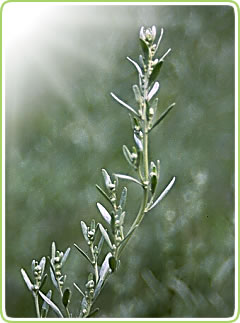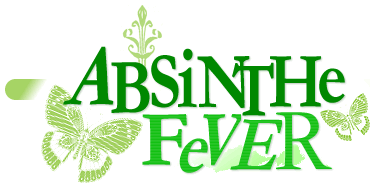
Home > All about absinthe > Thujone
Showing message 3 of 13 posted to:
Thujone
-- By Ari in California on Tue, 30 Jan 2007 at 23:12.
Unfortunately many people have fallen into a fallacy, believing that because thujone was targeted in the past it must be the cause of any "absinthe effects." Modern evidence has shown that absinthe contains very little thujone and that thujone inhibits GABA receptor activation, which would not cause hallucinations or other reported effects. While it was blamed by poor science in the past, it has been picked up by modern myth and is used by companies to hype poor products even though it has no effect on absinthe drinkers.
More information,
http://www.wormwoodsociety.org/thujone.html
http://www.thujone.info/
Show all messages (13) posted to
the "Thujone" page
Copyright © 2006 AbsintheFever.com Contributors.
All Rights Reserved.

Thujone is found in a variety of common plants and herbs. In absinthe, thujone comes from wormwood (pictured), the wild-growing perennial that is especially rich in the substance. (Photo: H. Kress)

About thujone
The Wikipedia entry on thujone gives an overview of the substance's chemical composition and pharmacology. Also includes a brief discussion of thujone content in absinthe (modern and pre-ban).
Vivienne Baillie Gerritsen, writing for the Swiss Institute of Bioinformatics in 2005, isn't too thrilled by the Green Fairy's comeback. A scientific analysis of the effect of thujone, or a modern-day anti-absinthe rant? You decide.
Should you care to know that the substance's formal chemical name is "1-isopropyl-4-methylbicyclo[3.1.0] hexan-3-one", then the geeky 3Dchem's interactive 3-D model of the thujone molecule is a toy you'll like. Unfortunately, the associated article contains quite a few factual errors.




Questions about absinthe answered... plus open forum.
P_/thujone/forum/post thujone








